eCommerce has become a part of today’s life – no two ways about it. It is here to stay. Shoppers have stopped scouting malls or stores to get what they want. They just look through social media or online to check out products and make actual purchases. The eCommerce business and profit rates are thus increasing at an alarming rate.
If you want to thrive in the business world, you need to be a part of the eCommerce terrain. Whether you are looking to stretch your sales or want to transform your business from a startup to an established organization, eCommerce is your best bet.
Uncover the ideal eCommerce platform for your business needs
Establishing a web presence and building a solid website has taken precedence over renting a retail space. The entire business landscape is shifting online. And it is more than just a trend. In the coming years, experts expect more shoppers to turn to the Internet for a major chunk of their purchases.
Don’t believe what you just read? Here are some statistics to make you acknowledge the superpower of online sales.

Some eCommerce Statistics and Predictions
- In 2024, 21.2% of total retail sales will be executed online
- B2C online marketplaces in the U.S., like Amazon and eBay, will hit $2.1 trillion in sales by 2024
- Worldwide eCommerce sales are estimated to reach $7.528trillion by 2024
- Social media commerce spending is expected to rise to $ 1.698 billion by 2024
- Mobile commerce sales will account for $604.5 billion in commerce sales by 2024
- As per Insider Intelligence, the growth in retail eCommerce sales worldwide is expected to surpass $6.310 trillion in 2023
- A whopping 20.8% of retail purchases in 2023 and 24% in 2026 are touted to happen online
- Total eCommerce sales will grow a massive 12% in 2024
- The U.S. eCommerce sales will reach over $1.4 trillion in 2024
- 17.3% of the U.S. retail purchases will happen online in 2024
What does all this data signify? If you want to take your business to the next level, you should have eCommerce on your radar. The first step is to zero in on the best eCommerce platform for your business. Build a strong web presence. You will have a broader business horizon, wider customer reach, and the option to sell 24/7.
But first things first – you need a great eCommerce platform to kick-start your digital journey. Merchants are often perplexed or overwhelmed by the choice of platforms available in the market. Choosing one from many might turn out to be too overwhelming, especially for beginners.
We have made this task relatively easy for you. Here is a comprehensive breakdown of the best eCommerce platforms available in the market, complete with their pros, cons, and specialized features.
What is an eCommerce Platform?
Starting your business journey on the digital marketplace requires a solid foundation, and that’s where eCommerce platforms become relevant. These sophisticated online tools are the backbone for businesses looking to establish and manage their virtual storefronts. From showcasing products to processing transactions securely, an eCommerce platform is essentially the digital counterpart of a physical retail space. It seamlessly integrates various elements, providing businesses with the necessary tools to present, sell, and manage their products or services online. In essence, it’s the key to unlocking the vast opportunities and global reach offered by the digital commerce terrain.
Interesting eCommerce Data and What it Means for Your Online Business
The global eCommerce market is growing at a never-before speed. With sales projected to exceed $7 trillion by 2025, the opportunities for online businesses are immense. But with this growth comes increased competition and higher consumer expectations, making it crucial for your online business to bring its A-game.
One of the most significant trends is the rise of mobile commerce, as it is expected to dominate nearly 78% of all eCommerce transactions. Hence, optimizing your online store for mobile users is now a necessity rather than an option. For businesses looking to capture a larger market share, ensuring a seamless mobile shopping experience could be the key to unlocking higher conversion rates.
Additionally, personalization has become a critical factor in consumer decision-making. 59% of consumers are more likely to purchase from brands that offer personalized shopping experiences. It underscores the importance of leveraging A.I. and data-driven insights to deliver personalized product recommendations, targeted marketing, and customized shopping experiences. Furthermore, investing in personalization technologies can significantly impact businesses aiming to build customer loyalty and increase repeat purchases.

eCommerce Platform Features
Your eCommerce platform is the powerhouse that shapes up your eCommerce business. In the dynamic world of online business, an eCommerce platform becomes the heartbeat of your digital storefront. Think of it as your business’s tech-savvy sidekick, streamlining operations and enhancing customer experiences. Key features include:
Customization
Tailor your site to match your brand’s unique personality. Bring your brand colors and identity to your website with advanced customization capabilities from your platform.
Multiple Payment Gateways
Providing secure and diverse options for seamless transactions ensures that your customers will not abandon transactions halfway through. Confirm you do not lose out on potential customers by offering all popular payment gateways on your website.
Inventory Management
Management systems are the backbones of any eCommerce website. Make sure that you have an efficient product, order, and return management system in place to effortlessly track and organize your product offerings.
User-friendly Interface
An intuitive interface design offers a smooth shopping experience to customers. Compare platforms to find the one that best portrays your brand and its products to the customers through easy navigation.
Responsive Web Design (RWD)
With most customers shifting to handheld devices for searching and purchasing, you can reach customers on the go with a mobile-friendly setup. RWD is a web design approach to render your web pages well on all handheld screen sizes and resolutions while ascertaining easy usability.
Content Management System (CMS)
An easy content management system will make the shopping experience clutter-free and easy for your customers. An effective CMS will let you create, manage, modify, and publish content on your site without technical know-how.
Promotion and Discount Options
Maintaining promotion and discount tools will help you reduce cart abandonment and increase customer loyalty. Regular customers will feel recognized with customized promotions, while you can lure new customers to purchase with first-time discounts.
Easy Checkout
Most cart abandonment cases happen due to a laborious checkout process involving multiple steps and account creation. A simplified checkout process in one or two clicks will help bring customers back for more.
SEO-friendly
The platform’s code and layout should align with the search engine strategies to get noticed in customer searches. An SEO-friendly platform will help you leverage the features to create an impactful brand identity.
Advanced eCommerce SEO Capabilities
Advanced SEO optimization will help you design your website to show up on the first pages of search engines like Google. The feature will help your website become visible when customers search for information in your niche.
Reporting Tools Report Features
An advanced reporting system will help you assess where you stand vis-à-vis your performance. It will also help you build effective future business strategies.
Multi-channel Integration
An ideal eCommerce platform should expand your reach by integrating your store with various sales channels, including social media platforms, marketplaces, and in-store sales. The platform should also let you seamlessly manage all channels from a central dashboard.
Customer Relationship Management (CRM)
Your eCommerce platform should enhance customer retention and satisfaction with built-in CRM tools. It should also help you manage customer interactions, segment your audience, and personalize marketing efforts to build stronger relationships.
Automated Marketing Tools
You can boost your marketing efficiency with automated tools that handle tasks like email campaigns, abandoned cart recovery, and personalized recommendations. By doing so, you can ensure consistent customer engagement across different channels.
Integrated Blog or Articles Section
Your platform should not only sell products but should be capable of publishing authoritative content that hooks your readers. This feature will help you garner new customers.
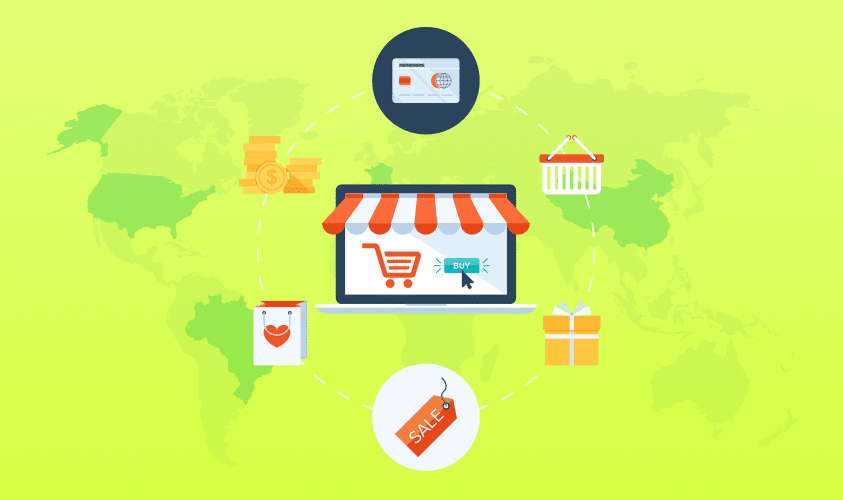
Types of eCommerce Platforms
As we discussed above, embarking on the eCommerce journey involves choosing the right platform. Your options and choices may vary to cater to your diverse business needs. Let us explore the three main types of eCommerce platforms below.
Open-source eCommerce Platforms
These platforms have a cloud or on-premise hosting environment. While you get the flexibility to handle every aspect of the code, you will also be responsible for the manual implementation of the updates and patches. In the realm of open-source platforms like Magento and WooCommerce, businesses enjoy unparalleled customization freedom. However, they demand a certain level of technical expertise for optimal utilization, making them ideal for those seeking a hands-on approach to their online store’s development.
SaaS (Software-as-a-service) eCommerce Platforms
These platforms use the cloud as their hosting environment. SaaS platforms, exemplified by Shopify and BigCommerce, offer a user-friendly, subscription-based model. Perfect for beginners, these platforms provide a seamless experience with built-in features, regular updates, and reliable customer support, simplifying the eCommerce journey for those prioritizing convenience and scalability.
Headless Commerce
For those craving flexibility in design and functionality, headless commerce, represented by platforms like Contentful and Commerce Layer, decouples the front-end and back-end systems. They are hosted on the cloud as well. This approach empowers businesses to create unique, immersive customer experiences while adapting to the ever-evolving digital landscape, making it a futuristic choice for those prioritizing innovation and adaptability in eCommerce.
Top 12 eCommerce Platforms for Your Business in 2024
Magento: Best for enterprise-level, B2B, and B2C business
WooCommerce: Works well with businesses of all sizes
BigCommerce: Best Platform for Larger Stores, Enterprise
Shopify: Best for startups, multi-channel sales, and print-on-demand
Squarespace: Best fit for small businesses
Volusion: Helps startups and small-scaling businesses
Wix: Best Value for Smaller Stores
Shift4Shop (Formerly 3dcart): Suits one-person business or multi-location retail enterprises
Prestashop: A good choice for small and medium businesses
Big Cartel: Best for small businesses selling individual pieces
OpenCart: Used by tech companies more
Weebly: Suitable for small and big businesses
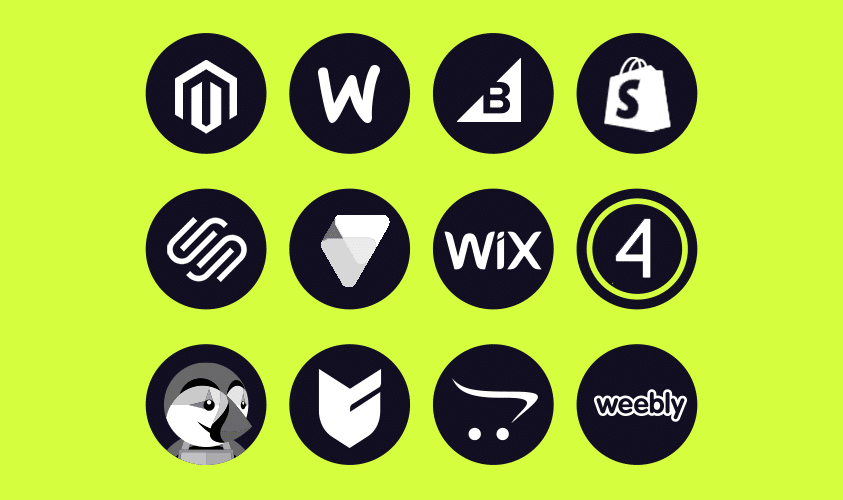
Magento (Now Adobe Commerce)
Meet Magento, the digital maestro empowering businesses with a robust eCommerce solution. Known for its flexibility and scalability, Magento development transforms online ventures into tailored, high-performing platforms.
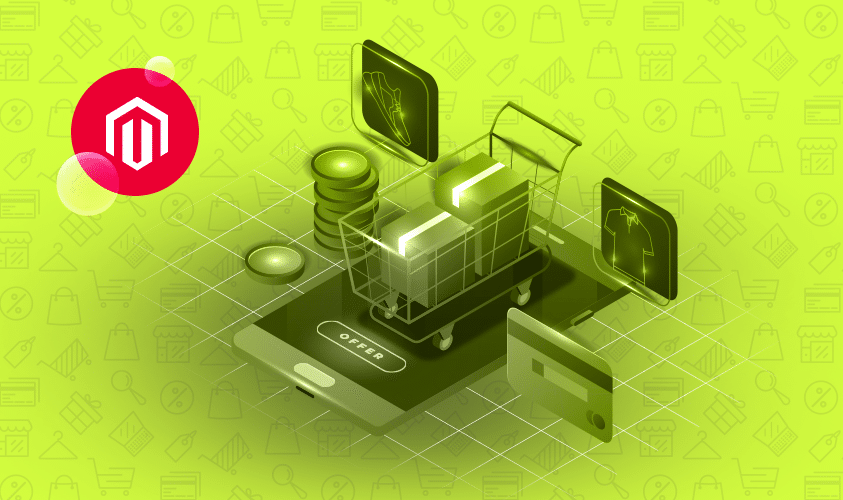
Magento Pricing and Plans
Magento’s pricing varies, offering both a free, open-source version (Magento Open Source) and a robust, feature-rich solution (Magento Commerce) with customizable pricing based on business needs. While the open-source option suits many, larger enterprises often find value in the comprehensive features of the Commerce edition. Enterprise solutions for large eCommerce businesses are expensive, with the annual licensing fee totaling tens of thousands of dollars.
Magento Features
Boasting a rich feature set, Magento covers the eCommerce essentials. From advanced product management to robust security and SEO optimization, it provides the tools needed for a successful online business.
Magento Extensions and Integrations
Magento’s extensive marketplace offers a plethora of extensions and integrations, allowing businesses to enhance functionality and tailor their online presence. From payment gateways to marketing tools, the possibilities for customization are vast.
Magento Recent Updates
Magento Open Source 2.4.7 introduces several key enhancements to improve platform performance, security, and scalability. Notably, this release adds compatibility with PHP 8.3, ensuring future-proofing against upcoming PHP updates. The platform also supports the latest versions of RabbitMQ, Varnish Cache, and Redis, along with significant performance improvements. Additionally, Magento has enhanced its payment capabilities through Braintree, including vaulted payment options for Apple Pay, Google Pay, and Venmo.
Magento Future Trends
Magento will continue focusing on platform optimization and compatibility with emerging technologies. Future updates will likely include expanded support for GraphQL, further enhancing headless commerce capabilities and improving API performance. Additionally, we expect the platform to use A.I. technology in security measures, payment integrations, and inventory management tools as Magento adapts to evolving needs.
Magento Pros and Cons
Pros:
· Unparalleled customization and scalability
· Large developer community
· Strong SEO options
· Robust and feature-rich platform
Cons:
· Expensive Themes
· Easily Slows Down
· Requires Development Skills
· Resource-intensive nature
Nonetheless, for those seeking a powerful eCommerce solution, Magento stands tall in the digital realm.
· Overall Score : 3.4
· User Rating : 3.8
Revolutionize your online presence with a feature-rich Magento website
WooCommerce
WooCommerce is the WordPress-integrated dynamo fueling online businesses with simplicity and power. As an open-source eCommerce plugin, WooCommerce seamlessly transforms WordPress sites into fully functional online stores, making it a go-to choice for those seeking ease of use and versatility.
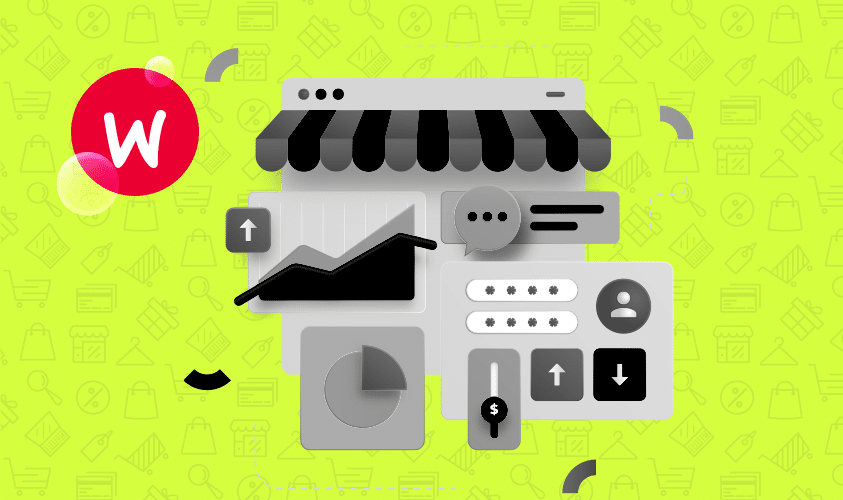
WooCommerce Pricing and Plans
WooCommerce, at its core, is open-source and free, aligning perfectly with budget-conscious startups and DIY enthusiasts. While the plugin itself is cost-effective, additional expenses may incur for domain, hosting, and premium extensions, offering scalability and flexibility to suit diverse business needs. Some WordPress themes are also expensive.
WooCommerce Features
WooCommerce combines a user-friendly design with a robust set of features. From product management to secure transactions and detailed analytics, it provides the essentials for creating and managing an online business, tailored to the unique needs of WordPress enthusiasts.
WooCommerce Extensions and Integrations
The WooCommerce ecosystem flourishes with a diverse range of extensions and integrations. Whether it’s expanding payment options, enhancing shipping logistics, or integrating marketing tools, the platform offers a wealth of possibilities for customization and growth.
WooCommerce Recent Updates
WooCommerce now allows editing of “Proceed to Checkout” and “Place Order” button texts directly in the Cart and Checkout blocks, offering more customization. The new checkout settings align with core WooCommerce options, and non-ASCII support has been added to the Filter by Attribute Block. These updates and various bug fixes enhance user control and streamline store management.
WooCommerce Future Trends
WooCommerce will likely focus on further customization options, AI-driven personalization, and improving mobile responsiveness. Expect continued emphasis on global commerce support and seamless integration with WordPress core updates. Moreover, you can expect more niche-specific plugins to take on complex and multiple tasks.
WooCommerce Pros and Cons
Pros:
· Seamless WordPress integration
· Extensive community
· Gentle learning curve
· Best SEO platform
Cons:
· Need additional plugins for advanced features
· Extensive customization needs technical knowledge
· Expensive hosting
· Arduous troubleshooting
For WordPress enthusiasts seeking an adaptable and user-friendly eCommerce solution, WooCommerce stands as a formidable choice.
· Overall Score : 4.0
· User Rating : 4.8
Ignite your online success with WooCommerce
BigCommerce
BigCommerce is a versatile eCommerce maestro designed for businesses aiming for growth and flexibility. Renowned for its user-friendly interface and built-in features, BigCommerce provides a robust foundation for online ventures seeking scalability and ease of use.
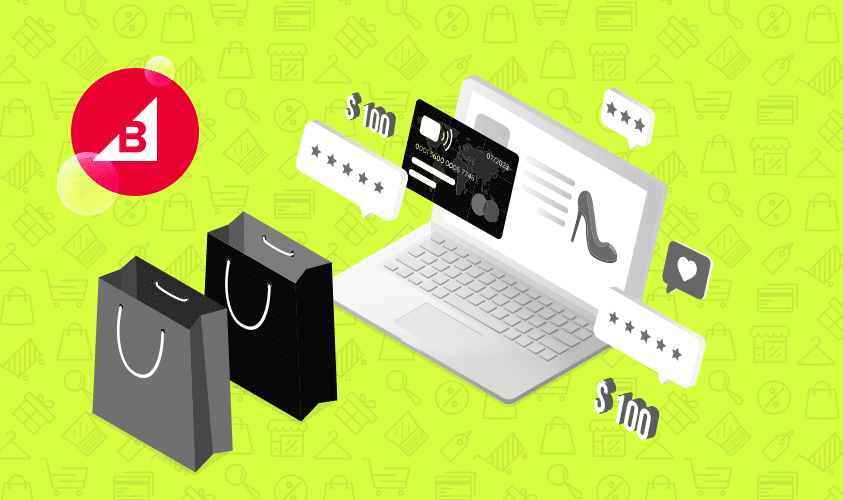
BigCommerce Pricing and Plans
BigCommerce offers transparent pricing plans catering to businesses of all sizes. While not the most budget-friendly, its plans cover a broad spectrum, ensuring that businesses can scale up without worrying about outgrowing their eCommerce platform, making it a solid investment for mid-sized enterprises with growth ambitions. BigCommerce has similar plans as Shopify, costing $29.95/month, $79.95/month, and $299.95/month.
BigCommerce Features
BigCommerce stands out for its all-inclusive features, covering everything from seamless inventory management to secure transactions and SEO optimization. Its intuitive dashboard and comprehensive toolkit make it a compelling choice for businesses seeking a hassle-free and feature-rich eCommerce solution.
BigCommerce Extensions and Integrations
With a robust marketplace, BigCommerce offers a variety of extensions and integrations to enhance functionality. From third-party apps to custom integrations, businesses can tailor their online stores to specific needs, ensuring a personalized and efficient eCommerce experience.
BigCommerce Recent Updates
BigCommerce has refined its platform with critical updates to improve user experience and security. The Cart and Checkout API supports optimistic concurrency control to prevent data conflicts during simultaneous actions. Enhanced product code support and new pricing fields in the Checkout API allow for more detailed and personalized shopping experiences. Additionally, improved authentication in the GraphQL Storefront API strengthens session security.
BigCommerce Future Trends
BigCommerce is poised to enhance AI-driven personalization and automation, offering more personalized user experiences. The platform will likely expand headless commerce capabilities for greater customization and focus on optimizing mobile responsiveness and global selling options.
BigCommerce Pros and Cons
Pros:
· User-friendly interface
· Built-in features
· Scalability and flexibility
· Strong SEO capabilities
Cons:
· Inconsistent load speed
· Steep pricing for smaller businesses
· No 1-Click Selling
· Limited theme selection
Overall, for businesses with growth aspirations and a desire for a feature-rich eCommerce environment, BigCommerce stands as a reliable choice.
· Overall Score: 4.1
· Customer Rating: 3.7
Supercharge your business with the aid of the BigCommerce platform
Shopify
Shopify is the friendly giant of eCommerce platforms, known for its simplicity and versatility. As an all-in-one solution, Shopify caters to businesses of all sizes, providing a user-friendly environment to turn entrepreneurial dreams into digital reality.
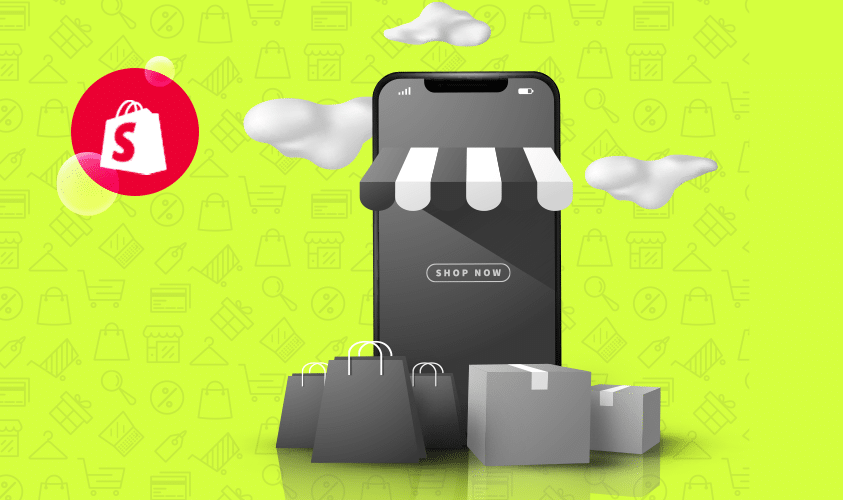
Shopify Pricing and Plans
Shopify’s pricing structure is straightforward, offering a tiered system that accommodates various business scales. While not the most budget-friendly, the plans include everything needed for a seamless online store, making it an ideal choice for beginners and small to medium-sized businesses looking for an accessible entry point to eCommerce. Shopify has three different pricing plans, ranging from $39 – $399/month. One year upfront commitment gives you a 10% discount and 24 months a 20% discount. All plans have free trial options.
Shopify Features
Shopify boasts an array of features covering essential eCommerce needs, from inventory management to secure transactions and mobile responsiveness. Its user-friendly dashboard and drag-and-drop functionality make it a go-to choice for those prioritizing simplicity without compromising on functionality.
Shopify Extensions and Integrations
The Shopify App Store is a treasure trove of extensions and integrations, offering a wide array of tools to enhance store capabilities. From marketing to logistics, businesses can easily tailor their online presence, ensuring a customized and efficient eCommerce experience.
Shopify Recent Updates
Shopify has rolled out significant updates aimed at improving merchant and customer experiences. Eligible U.S. Shopify Plus and Advanced merchants can join the YouTube Shopping affiliate program, enabling product tagging in YouTube videos. The new Finance section consolidates all financial products, making managing Capital, Credit, Balance, and Payouts easier in one place. Shopify Collective allows retailers to fetch suppliers’ shipping rates directly at checkout, streamlining the process. Additionally, Flow has been upgraded with new tools for managing returns and suggested replies in Shopify Inbox powered by A.I.
Shopify Future Trends
Shopify will likely continue expanding its integration with popular platforms like YouTube, further enhancing its cross-platform selling capabilities. The focus will remain on improving financial management tools, streamlining shipping and checkout processes, and expanding features that support global commerce.
Shopify Pros and Cons
Pros:
· Fast loading, Intuitive interface
· Vast app ecosystem
· Excellent scalability
· Robust multichannel sales
Cons:
· Limited advanced customization
· High transaction fees for high-volume businesses
· Feeble SEO and content marketing
· Non-customizable checkout
Overall, Shopify’s approachable design and robust features make it a top contender for businesses seeking a hassle-free eCommerce journey.
· Overall Score : 4.3
· User Rating : 4.5
Redefine your eCommerce experience with special Shopify features
Squarespace
Say hello to Squarespace, where aesthetic meets functionality in the world of eCommerce. Renowned for its sleek website designs, Squarespace seamlessly integrates eCommerce capabilities, providing an elegant solution for creative entrepreneurs.
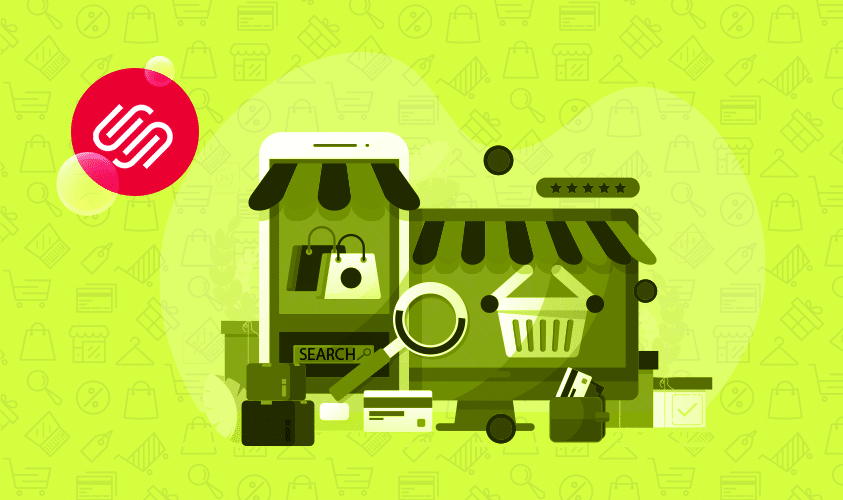
Squarespace Pricing and Plans
Squarespace’s pricing structure is straightforward, with a focus on simplicity. Offering an all-inclusive approach, its plans cover hosting, domain, and eCommerce features. While not the most feature-rich, it’s an excellent choice for those seeking an uncomplicated entry into eCommerce without compromising on design aesthetics. Pricing starts at $23/month ($16/month annually) for the Personal Plan. The Business plan is billed at $33/month ($23/month annually billing). The Commerce Basic Plan is for $36/month ($27 with discount) and the Commerce Advanced Plan is for $65/month ($49 with annual discount.)
Squarespace Features
Squarespace shines in visual appeal, offering stunning templates and a user-friendly design interface. It incorporates essential eCommerce features, from inventory management to secure transactions, making it an ideal choice for businesses prioritizing a visually striking online presence.
Squarespace Extensions and Integrations
While Squarespace may not boast the extensive app marketplace of some competitors, it provides key integrations for essential functionalities. From social media integration to payment gateways, Squarespace allows businesses to personalize their online stores within its elegant design framework.
Squarespace Recent Updates
Squarespace has recently introduced a new version of its Products API, allowing read-only access to download products. This update enables users to retrieve downloaded products through the API, improving flexibility in managing digital goods. Additionally, the Products API supports filtering by product type, and the limit on product attributes increased from three to six.
Squarespace Future Trends
Squarespace will continue refining its API capabilities to offer more robust tools for developers and merchants. As digital products and subscriptions grow in popularity, further enhancements in managing these product types are likely. Additionally, Squarespace may improve its billing and account management features, ensuring smoother user experiences, particularly for sites in expired billing states.
Squarespace Pros and Cons
Pros:
· Easy setup
· Works well for simple stores
· Visually appealing templates
· Straightforward pricing model
Cons:
· Limited integrations
· Lesser payment gateways
· Low scalability and advanced functionalities
· Lack phone support
Overall, Squarespace offers a compelling blend of form and function in the eCommerce landscape.
· Overall Score : 3.4
· User Rating : 3.5
Rev up your virtual storefront with exceptional Squarespace capabilities
Volusion
Volusion is a dynamic eCommerce platform geared towards businesses seeking a robust and feature-rich online presence. Known for its emphasis on providing comprehensive solutions, Volusion caters to entrepreneurs looking to establish and grow their digital storefronts.
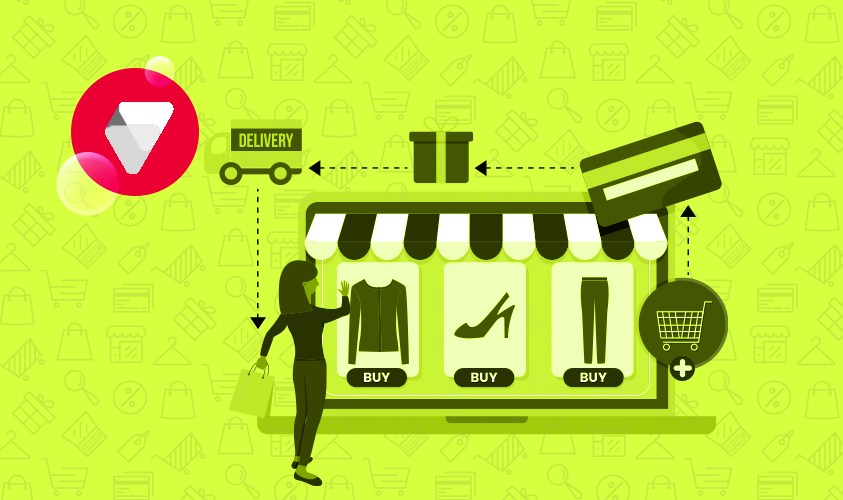
Volusion Pricing and Plans
Volusion offers a range of pricing plans, allowing businesses to choose based on their size and needs. The $35 and $79 per month plans have restrictions of 100 and 5,000 products respectively. For unlimited products, you need to opt $299/month premium plan. While not the most budget-friendly, the plans include essential features like secure transactions and mobile responsiveness, providing businesses with a comprehensive foundation for their eCommerce journey.
Volusion Features
Volusion distinguishes itself with a suite of features covering essential eCommerce functions. From product management to order processing and marketing tools, it offers a comprehensive toolkit to streamline online operations, making it an attractive choice for businesses prioritizing functionality.
Volusion Extensions and Integrations
While Volusion may not have the extensive app marketplace of some competitors, it provides essential integrations for enhancing store capabilities. From payment gateways to shipping logistics, businesses can extend their functionality within the Volusion ecosystem, ensuring a tailored and efficient eCommerce experience.
Volusion Recent Updates
Volusion has continued to enhance its backend capabilities, focusing on inventory management and analytics. While the platform may not offer the best front-end experience, its recent updates have solidified its reputation as a robust tool for managing complex product inventories and gaining actionable insights.
Volusion Future Trends
Looking forward, Volusion is expected to continue refining its backend systems, with a focus on advanced analytics and inventory management tools. These updates will support businesses with large product catalogs. However, the emphasis will likely remain on strengthening its core data management and operational efficiency competencies.
Volusion Pros and Cons
Pros:
· Comprehensive features
· Strong onboarding and customer support
· SMB friendly
· Subscription/Recurring Payments
Cons:
· High pricing for smaller businesses
· Limitations on advanced customization options
· Slow load time
· No Up/Cross Selling
Overall, Volusion stands as a solid choice for businesses seeking a feature-rich and well-supported eCommerce platform.
· Overall Score : 3.4
· User Rating : 1.3
Build a Volusion store from the ground up
Wix
Wix is where creativity and commerce converge in a seamless online experience. Renowned for its website-building prowess, Wix extends its user-friendly approach to eCommerce, providing a platform where design meets functionality for businesses of all sizes.
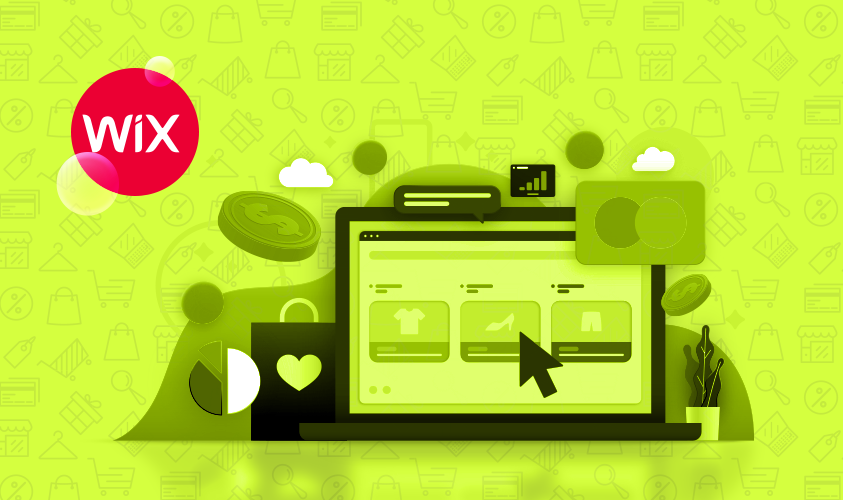
Wix Pricing and Plans
Wix offers a variety of pricing plans, making it accessible to businesses with diverse budgets. From free plans with basic features to premium subscriptions with enhanced eCommerce capabilities, Wix ensures flexibility, allowing users to scale their online presence at their own pace. It has three plans, namely, Business Basic at $27/month, Business Unlimited at $32/month, and Business VIP at $59/month.
Wix Features
Wix excels in its intuitive design interface and visually appealing templates. Its eCommerce features cover essential functions, from product management to secure transactions, offering businesses an accessible platform with a focus on design aesthetics.
Wix Extensions and Integrations
Wix’s App Market provides a range of extensions for users to enhance their website’s functionality. While not as extensive as some competitors, Wix allows businesses to integrate key functionalities, from marketing tools to payment gateways, seamlessly into their websites.
Wix Recent Updates
Wix has recently introduced several key features to enhance user experience and expand payment options. Customers in the U.S. can now use Afterpay for installment payments, offering flexibility while merchants get paid upfront. The platform has also integrated Google Pay, reducing cart abandonment with a quicker checkout process. Additionally, Wix has launched Tap to Pay on Android, further expanding its POS solutions, and enhanced its SEO tools with the Site-Level SEO Assistant.
Wix Future Trends
Wix will most likely expand its payment solutions, adding more global providers to accommodate diverse markets. The platform will also focus on deepening its integration with design and SEO tools, offering more advanced features to help users optimize their websites for search engines. As mobile commerce grows, Wix will likely enhance its POS offerings, making it easier for businesses to accept payments across all devices.
Wix Pros and Cons
Pros:
· Free themes
· Marketing automation
· Simple usage and easy setup
· Diverse pricing options
Cons:
· Limited customization
· Less scalability
· Poor SEO
· Feeble upselling options
Overall, Wix caters to businesses seeking a balance between design aesthetics and eCommerce functionality.
· Overall Score : 4.1
· User Rating : 3.7
Build the coolest Wix eCommerce platform
Shift4Shop (Formerly 3dcart)
Discover Shift4Shop, an eCommerce platform designed for businesses aiming for a comprehensive online presence. Recognized for its robust features and flexibility, Shift4Shop empowers entrepreneurs with the tools needed to create and manage a thriving digital storefront.
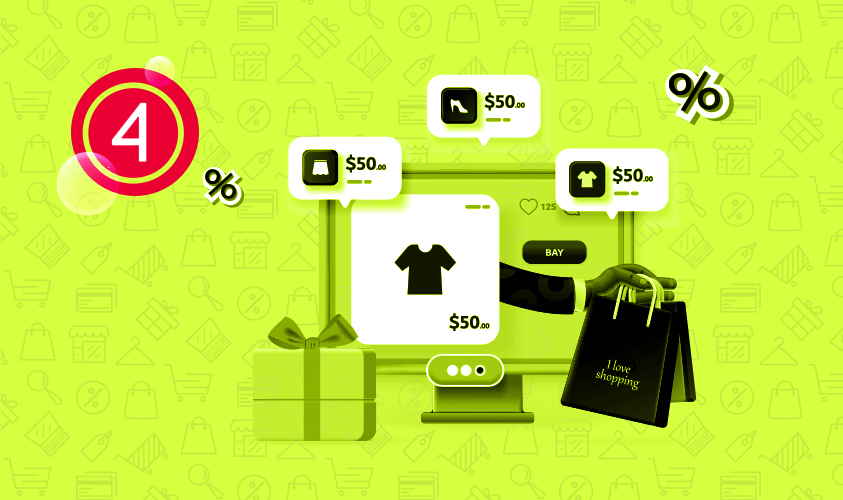
Shift4Shop Pricing and Plans
Shift4Shop offers a range of pricing plans catering to businesses of all sizes. With a variety of features included in each plan, Shift4Shop ensures scalability and adaptability, making it a solid investment for those seeking a well-rounded eCommerce solution. The platform is for merchants having $500 in sales transactions per month. For others they charge $29/month with PayPal.
Shift4Shop Features
Shift4Shop distinguishes itself with a rich feature set covering essential eCommerce functions. From inventory management to secure transactions and marketing tools, it provides a comprehensive toolkit for businesses seeking functionality and growth.
Shift4Shop Extensions and Integrations
Shift4Shop’s App Store offers a variety of extensions to enhance store capabilities. From payment gateways to shipping logistics, businesses can customize their online presence within the Shift4Shop ecosystem, ensuring a tailored and efficient eCommerce experience.
Shift4Shop Recent Updates
Shift4Shop recently introduced enhancements focused on compliance, performance, and user experience. The platform has also upgraded its WYSIWYG editor across various content types and improved its CSV import process for Enhanced Catalog Feeds, simplifying the inclusion of Google’s required product data fields. Additionally, category pages and checkout processes have been optimized for speed, loading up to 8x faster for seamless shopping.
Shift4Shop Future Trends
Shift4Shop is likely to continue refining its compliance features and improving platform performance. Expect further enhancements in content management tools and integrations, particularly those that simplify SEO and catalog management. As speed and user experience remain critical, additional optimizations across the platform can be anticipated, especially in areas directly impacting customer satisfaction and store efficiency.
Shift4Shop Pros and Cons
Pros:
· Comprehensive feature set
· Robust customer support
· Ample integrations
· Exceptional business management tools
Cons:
· Not beginner friendly
· Less diversity in themes
· Upgrade issues
· Bad reviews on support
Overall, Shift4Shop stands as a reliable choice for businesses seeking a feature-rich and adaptable eCommerce platform.
· Overall Score : 3.9
· User Rating : 2.2
Upgrade your online journey with a Shift4Shop storefront
Prestashop
As a platform, PrestaShop is dynamic and offers a blend of flexibility and efficiency. Renowned for its open-source nature, PrestaShop empowers businesses with a customizable and scalable solution for their online ventures.
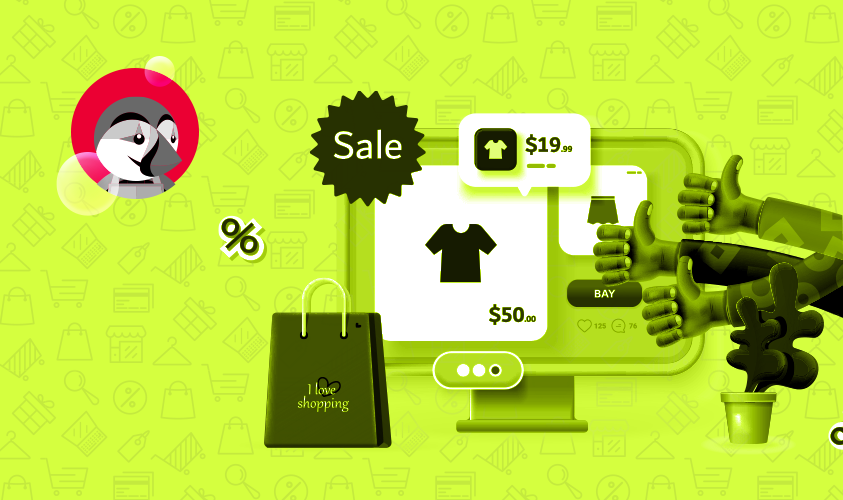
Prestashop Pricing and Plans
PrestaShop stands out with its open-source model, making the core software free. While additional expenses may incur for hosting and premium modules, this flexibility suits businesses with diverse budgetary constraints, providing a cost-effective entry point to eCommerce. The pricing can range from 4$ – $14 per month.
Prestashop Features
PrestaShop excels in its extensive feature set, covering the essentials of eCommerce. From product management to secure transactions and SEO optimization, PrestaShop provides a robust toolkit for businesses aiming for a tailored and high-performing online store.
Prestashop Extensions and Integrations
PrestaShop’s marketplace hosts a variety of extensions and integrations, allowing businesses to expand their functionality. From payment gateways to marketing tools, PrestaShop enables users to personalize their online presence, ensuring a customizable and efficient eCommerce experience.
PrestaShop Recent Updates
PrestaShop has recently implemented several improvements and bug fixes to enhance the Back and Front Office functionalities. Critical updates include introducing an Export button on the new Product Page V2 and improving product SEO metadata management. Additionally, the Back Office now features enhanced security by hiding the PrestaShop version on the login screen until a successful login. Bug fixes have addressed issues with the product page and visual responsiveness.
PrestaShop Future Trends
PrestaShop will likely continue refining its Back Office tools, improving product management and SEO capabilities. The platform may also expand its efforts to enhance security and user interface resilience, ensuring a smoother experience for merchants and developers alike. Furthermore, Prestashop is also likely to incorporate advanced A.I. capabilities soon.
Prestashop Pros and Cons
Pros:
· Open-source foundation
· Extensive feature set
· Large community for support
· Easy to install
Cons:
· Overwhelming for beginners
· Unprofessional design
· Limited scalability
· No official support team
Overall, PrestaShop stands as a versatile choice for businesses seeking a customizable and cost-effective eCommerce solution.
· Overall Score : 4.3
· User Rating : 3.9
Looking to level up your online store with Prestashop?
Big Cartel
Step into the world of Big Cartel, a niche-focused eCommerce platform tailored for independent artists and makers. Renowned for its simplicity, Big Cartel offers a straightforward solution for creative entrepreneurs looking to showcase and sell their unique products online.
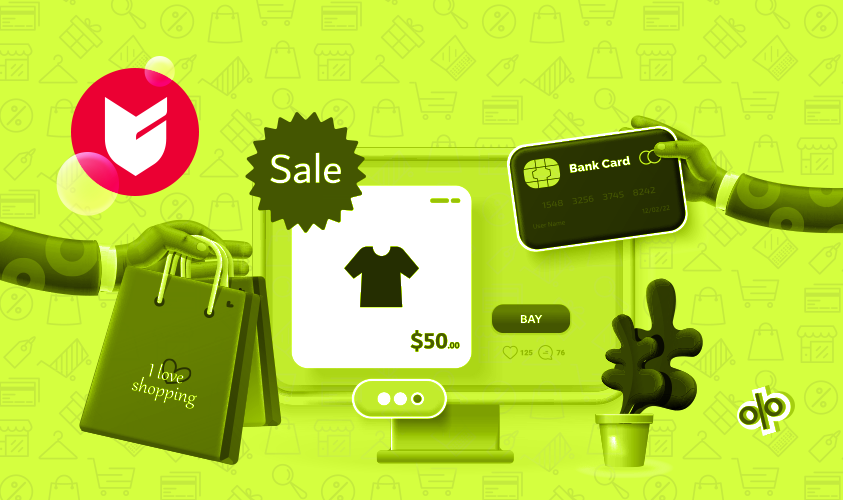
Big Cartel Pricing and Plans
Big Cartel keeps it simple with a range of budget-friendly plans, making it accessible for small businesses and individual artists. While the free plan offers basic Gold features, premium plans provide additional customization and product listings, ensuring flexibility for those on a creative journey with varying needs. The platinum and diamond plans are $9.99/month and $19.99/month respectively.
Big Cartel Features
Big Cartel prides itself on simplicity, offering features essential for independent sellers. From easy product management to secure transactions, it provides a user-friendly environment for artists to curate their online storefronts without the complexities of larger eCommerce platforms.
Big Cartel Extensions and Integrations
While Big Cartel’s extension options are more limited compared to larger platforms, it integrates seamlessly with key services. From payment gateways to social media, Big Cartel ensures that artists can connect their online stores with the tools they need to thrive in the digital marketplace.
Big Cartel Recent Updates
Big Cartel has introduced several key updates to enhance seller tools and boost sales. The new Abandoned Cart Recovery feature (exclusively for Diamond plan users) helps recover lost sales with automatic reminder emails. An enhanced product table view now allows for improved bulk editing, streamlining product management for paid sellers. Sellers in the U.S. can also create and print shipping labels directly from their Big Cartel admin.
Big Cartel Future Trends
Big Cartel will likely continue expanding its feature set for higher-tier plans, focusing on tools that drive sales and improve shop management efficiency. Enhanced integrations, particularly with automation tools like Zapier and apps like Fera.ai, will likely remain a priority, offering more robust customization options for developers and partners.
Big Cartel Pros and Cons
Pros:
· Budget-friendly plans
· Focus on simplicity
· Multiple payment options.
· Real-time stats
Cons:
· Low product caps
· Limited features
· No built-in blogging capabilities
· Bad with SEO
Overall, for independent artists seeking an uncomplicated and affordable eCommerce solution, Big Cartel offers a tailored platform to showcase and sell their creative endeavors.
· Overall Score : 3.9
· User Rating : 2.7
Up your game with a killer Big Cartel online store
OpenCart
OpenCart is a versatile open-source eCommerce solution, offering a balance of simplicity and extensive features. Ideal for small to medium-sized businesses, OpenCart caters to those seeking a customizable and cost-effective platform for their online ventures.
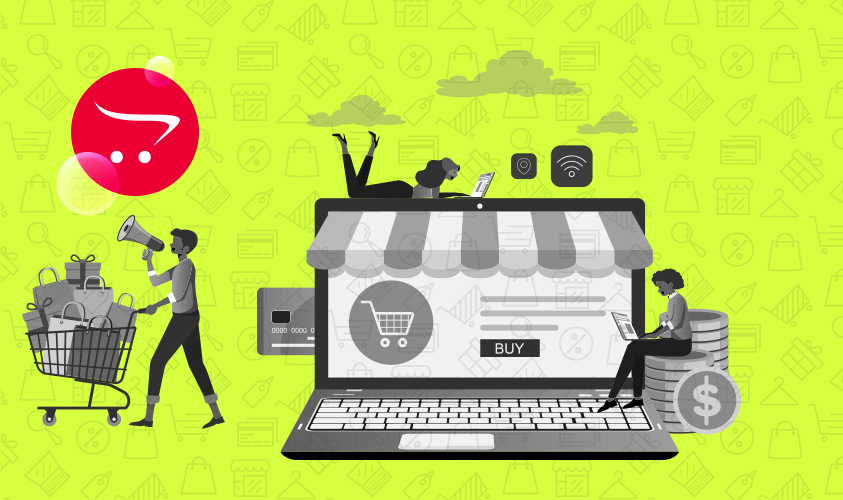
OpenCart Pricing and Plans
As an open-source platform, OpenCart is inherently budget-friendly, with the core software available for free. While additional costs may arise for hosting and premium extensions, this flexibility makes it an accessible option for businesses of varying sizes, providing an affordable entry point to eCommerce. The average cost of a basic Shopping Cart Software plan is $25 per month. 51% of Shopping Cart Software offer a Free Trial, while 44% offer a Freemium Model.
OpenCart Features
OpenCart distinguishes itself with a comprehensive feature set, covering essentials like product management, secure transactions, and SEO optimization. Its user-friendly dashboard empowers businesses with the tools needed to create and manage a dynamic online store, making it a compelling choice for those valuing functionality.
OpenCart Extensions and Integrations
OpenCart’s marketplace offers a variety of extensions and integrations, allowing businesses to tailor their online presence. From payment gateways to marketing tools, OpenCart enables users to enhance their store’s capabilities within its open-source framework, ensuring adaptability and customization.
OpenCart Recent Updates
OpenCart has rolled out numerous updates to improve system stability, security, and compatibility. Key updates include bug fixes for currency rate refreshes, pagination issues, and PayPal integration. The platform has also introduced security patches for account and admin access, ensuring better protection against unauthorized access. Additionally, enhancements in the backup tool, Google Base extension, and various other components help to streamline the overall user experience.
OpenCart Future Trends
As OpenCart continues to evolve, the focus will likely shift towards further strengthening security measures and optimizing performance across the platform. With ongoing updates to payment gateways and backend tools, the platform is set to enhance user management and ensure compatibility with the latest web standards. Expect continuous refinements that cater to the growing needs of eCommerce businesses, particularly in areas like integration and system reliability.
OpenCart Pros and Cons
Pros:
· Affordability
· User-friendly interface
· Vibrant community for support
· Complete set of reports and metrics
Cons:
· Slow checkout
· Canonization issues for SEO
· Difficult to import your inventory list
· Too lightweight for some users
Overall, OpenCart stands as a flexible and cost-effective choice for businesses seeking a customizable eCommerce solution.
· Overall Score : 3.0
· User Rating : 2.5
Skyrocket your online business with an OpenCart digital storefront
Weebly
Uncover Weebly, a user-friendly eCommerce platform renowned for its simplicity and sleek design. Tailored for entrepreneurs and small businesses, Weebly offers a seamless blend of creative freedom and essential eCommerce functionality, making it an ideal choice for those looking to establish a visually appealing online presence without the complexity.
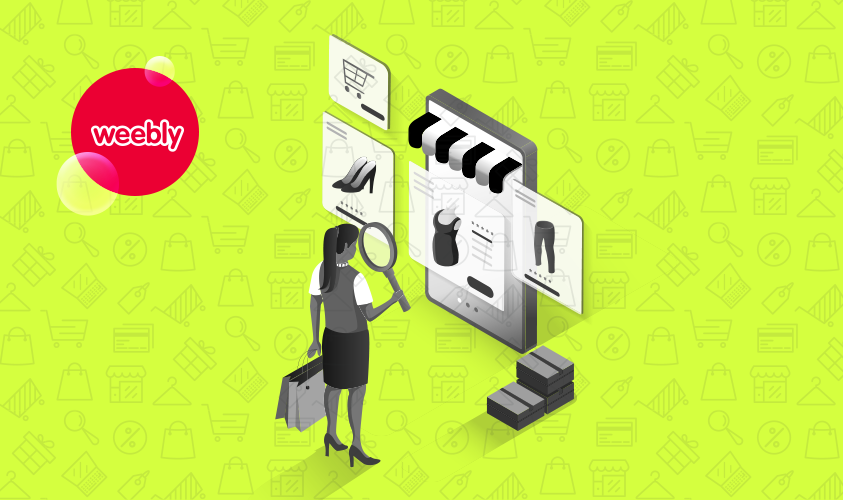
Weebly Pricing and Plans
Weebly’s pricing model is straightforward, offering a range of plans to suit diverse budgets. From free plans with basic features to premium subscriptions providing enhanced eCommerce capabilities, Weebly ensures accessibility for businesses at different stages of their online journey. Weebly has four plans ranging from $0 – $26/month, billed annually. The Free plan is suitable for basic sites. The Personal plan is $10/month and the Professional plan costs $12/month. The advanced Performance plan is priced at $26/month.
Weebly Features
Weebly excels in providing a user-friendly interface and visually appealing templates. Its features cover the essentials of eCommerce, including product management, secure transactions, and mobile responsiveness, making it a top pick for those prioritizing simplicity and design aesthetics.
Weebly Extensions and Integrations
While Weebly’s App Center may not be as extensive as some competitors, it offers essential integrations to enhance online stores. From payment gateways to marketing tools, Weebly allows businesses to extend their functionality within its user-friendly ecosystem, ensuring a customized and efficient eCommerce experience.
Weebly Recent Updates
Weebly has introduced several updates to enhance user experience and expand functionality. Users can now create gradient backgrounds directly in the Editor, adding a personalized touch to their sites without needing external design tools. Weebly has added Apple Pay and Android Pay checkout options for mobile shoppers, streamlining the purchasing process. The platform has also launched powerful apps, including Printful for custom printing and fulfillment and GoBot for automating sales and leads with a chatbot.
Weebly Future Trends
Weebly will likely continue enhancing mobile and eCommerce capabilities, with further integrations to improve inventory management and checkout processes. The platform will also expand its app ecosystem, offering more tools for customization, automation, and mobile optimization. Weebly will likely prioritize features that enhance design flexibility and operational efficiency as user expectations grow.
Weebly Pros and Cons
Pros:
· Straightforward interface
· Visually appealing templates
· Budget-friendly plans
· Password-protects pages and folders
Cons:
· Low scalability
· Ads on free websites
· Lack of control on website design
· Less themes and features
Overall, Weebly provides an accessible and visually pleasing eCommerce solution for entrepreneurs seeking simplicity.
· Overall Score : 4.2
· User Rating : 3.6
Need help with your Weebly website development?
Factors to Consider When Choosing Your eCommerce Platform
Choosing the right eCommerce platform is the toughest factor you would need to face to run a successful online business. Finding the right eCommerce platform involves a balance between your business requirements, technical capabilities, and the overall experience you want to provide for your customers. We would suggest you consider the following factors to make an informed decision.
Business Type
Assess your business needs and size. Whether you are a startup, a growing enterprise, or an established brand, find a platform that aligns with your future goals.
Ownership of Hosting and Platform
Another important factor to consider is whether your platform is self-hosted or on the cloud. Depending on the degree of control you want on your website and also the security management, you should decide on the platform hosting. Choose between open-source, SaaS, or headless platforms for ownership based on your usage.
Cost of Ownership
Consider not only upfront costs but also ongoing expenses, including hosting, transaction fees, and any additional features or plugins you may need.
Integration
You need to make sure that the platform you choose can easily integrate with your current business software and systems. The feature should come without additional costs.

User Experience and Community Support
Look for an intuitive interface that suits your level of technical expertise, ensuring a smooth user experience for both you and your customers. Assess the availability of customer support and the strength of the user community for assistance and guidance, ensuring you have reliable help when needed.
Speed and Scalability of the Platform
Opt for a platform that ensures fast loading times, as slow performance can drive potential customers away and impact your search engine rankings. Ascertain that your platform grows with your business, providing the scalability to accommodate increased traffic, products, and transactions over time.
Product Management System
Whenever choosing a platform for your eCommerce business, it should have a solid product management system in place for the wide assortment of products and their variants.
Platform Security
Prioritize a platform with robust security features to protect sensitive customer information and build trust in your online store. Make sure that your platform supports security audits, PCI (Payment Card Industry) compliance, SSL (Secure Sockets Layer) certificate, and fraud prevention and data backups.
SEO Capabilities
Your platform needs to be aligned with the strategies of search engines for your customers to find them easily online. So take into consideration how good your platform is at Search Engine Optimization before taking the final call.
Payment Gateways support
Ensure the platform supports a variety of payment gateways to offer convenience to your customers and accommodate different preferences.
Customization Options
Evaluate the platform’s flexibility for design and functionality customization to match your brand identity and meet specific business requirements.
Mobile Responsiveness
In the mobile era, choose a platform that offers responsive design or a dedicated mobile app to cater to the growing number of users accessing your site via smartphones and tablets.
eCommerce Platforms Comparison - Magento Vs. WooCommerce Vs. BigCommerce Vs. Shopify
Overall, these are our final thoughts on the 4 most popular platforms in the business.
Magento
A powerhouse for large enterprises and is a robust platform with extensive customization options. It can be demanding in expertise and has a steeper learning curve and higher ownership costs.
WooCommerce
The DIY champion, beloved by WordPress users, offering flexibility and creativity without breaking the bank. It is highly flexible due to its integration with WordPress, excellent community support, and a wide range of plugins.
BigCommerce
A reliable choice for startups, and mid-sized growing businesses, balancing ease of use with good built-in features and scalability.
Shopify
The friendly giant, perfect for startups and small businesses, boasting an easy learning curve, excellent scalability, vibrant themes, and a rich app ecosystem. It’s often preferred by beginners and small to medium-sized businesses.
| Factor | Magento | WooCommerce | BigCommerce | Shopify |
| Overall Rating | 4.3/5 | 4.7/5 | 4.5/5 | 4.8/5 |
| User Verdict | Dedicated but Complex | WordPress Enthusiasts | Easy for Growing Biz | User-Friendly Darling |
| Business Type | Enterprise-Focused | Diverse | Mid to Large Businesses | Startups to Mid-sized |
| Pricing | ||||
| Payment Gateways | Extensive but Custom (4.7/5) | Flexible Choices
(4.9/5) |
Well-Integrated
(4.8/5) |
Streamlined Selection (4.9/5) |
| Value for Money | High for Tech Pros | Great for DIY Spirit | Solid Investment | Starter-Friendly |
| Features | Robust Customization | WordPress Synergy | Built-in Functionality | App-Rich Powerhouse |
| Performance | Powerful but Requires Optimization Efforts | Responsive and Nimble | Reliable and Speedy | Speedy Storefronts |
| Ease of Use | Learning Curve Ahead (3.5/5) | WordPress Familiarity (4.7/5) | Intuitive and Friendly (4.8/5) | Smooth as Silk (4.9/5) |
| Design and Themes | Highly Customizable | Endless WordPress Themes | Modern and Sleek | Stylish and Adaptable |
| Integrations | Broad but Needs Expertise | Extensive WordPress Ecosystem | Seamless Integrations | App Extravaganza |
| Customization Options | Highly Customizable (5/5) | Customizable (4.8/5) | Customizable (4.6/5) | Customizable (4.7/5) |
| Scalability | Highly Scalable (4.8/5) | Scalable
(4.5/5) |
Scalable
(4.7/5) |
Highly Scalable
(4.9/5) |
| Mobile Responsiveness | Responsive | Responsive | Responsive | Responsive |
| Security | Highly Secure | Highly Secure | Highly Secure | Highly Secure |
But you should always remember that the “best” platform depends on your unique business needs, technical expertise, and preferences. Whether you’re a tech-savvy enterprise or a creative entrepreneur, there’s a platform out there in the market that suits your style. Businesses should carefully consider these factors before choosing an eCommerce platform.
Still trying to decide which platform to choose for your eCommerce website?
Final Thoughts on eCommerce Platform Selection: CartKnitter’s Recommendations
Discovering the ideal eCommerce platform involves considering your unique requirements, as no platform is flawless. We trust that our curated selection of standout choices above cater to all your diverse business needs.

We would rate Magento as the top platform based on robust features and enterprise-level facilities. In terms of versatility and SEO performance, BigCommerce emerges as the standout choice, excelling across various business models. WooCommerce is rapidly gaining ground against industry leaders like Shopify, boasting robust features and applications. It particularly shines for private/white-label eCommerce sites and proves exceptional for affiliate marketing. For those looking to manage a combination of private label and affiliate marketing, WooCommerce stands as a formidable option. Shopify takes the lead for seamless dropshipping, especially in the realm of print-on-demand.
If simplicity is key for your store, Wix proves suitable for uncomplicated setups and triumphs over alternatives like Squarespace or Weebly. Over the past few years, its evolution has positioned Wix as an ideal choice for solo entrepreneurs or small-scale stores. You can also pick alternate options, including OpenCart, Shift4Shop, Prestashop, and Big Cartel. It is always prudent to explore multiple choices at comparable price points as there is an abundant availability of options. Nevertheless, it’s important to acknowledge that these platforms have garnered a loyal user base.
What are the best eCommerce platforms in 2024?
In 2024, the eCommerce platform’s top choices include Shopify, WooCommerce, BigCommerce, and Magento for their robust features and user-friendliness. Other prominent platforms are Wix, Squarespace, Weebly, Shift4Shop, Cartel, Centre, and Ecwid for their unique eCommerce powering features. eCommerce merchants choose one of them to power their digital store.
Is Shopify still a top choice for eCommerce in 2024?
Yes, Shopify maintains its top position due to its user-friendly interface and a wide range of third-party apps. As per our research, Shopify is also the fastest platform. It makes the best eCommerce software option for multiple business types, especially trading involving dropshipping stores. They are also the best option for small businesses.
What makes WooCommerce a popular choice in 2024?
WooCommerce’s popularity stems from its flexibility and extensive customization options. Being a WordPress plugin, it has seamless integration with WordPress and has access to its sizable features. It is also a secure and reliable option for different businesses. It also comes with powerful analytics tools and extensive community support.
Which eCommerce platform is best for large-scale businesses in 2024?
BigCommerce is well-suited for large-scale businesses in 2024, offering scalability and a feature-rich environment. It has an easy CRM that can make the day-to-day grind easy for large establishments. Its robust catalog system, product categorization features, and bulk ordering system make it a cult favorite among large enterprises.
Is Magento 2 a suitable option for enterprise-level eCommerce?
Yes, Magento 2 is a strong choice for enterprise-level eCommerce with its advanced features and customization capabilities. Magento 2 Community suits businesses of all sizes due to its accessibility and flexibility. However, it offers specific eCommerce functionality suitable for enterprise business needs and is highly scalable.
What payment gateways are supported by the top eCommerce platforms?
Leading platforms like Shopify and WooCommerce support multiple payment gateways. The most popular payment method is PayPal, and it also supports drop shipping. US-based payment gateway Stripe is quite popular for its WooCommerce integration. Other popular payment gateways are Authorize.net, Amazon Pay, Skrill, and 2Checkout.
Are there any free eCommerce platforms for startups?
WooCommerce is the best eCommerce platform for startups, as it is free to start. WooCommerce also boasts the best collection of third-party tools to integrate novel features for a startup store. Startups can also consider other free platforms like Magento Community Edition, OpenCart, Ecwid, and PrestaShop for their cost-effective solutions.
Which platform offers the best SEO capabilities for eCommerce?
In 2024, WooCommerce will be the best choice for an SEO-friendly and economical eCommerce option. You can also consider popular platforms like BigCommerce, Shopify, Wix, Squarespace, Volusion, Magento, and Weebly. These platforms are known for their powerful SEO features, which can help you boost online visibility and search ranking.
What are the key factors to consider when choosing an eCommerce platform in 2024?
When selecting an eCommerce platform in 2024, factors such as ease of use, scalability, multiple payment options, and customization potential are vital considerations. Since most of your shoppers buy through their handhelds, your platform must be mobile-friendly. You should also make sure that your platform has a robust security system.
Are there any emerging eCommerce platforms to watch for in 2024?
Keep an eye on platforms like Ecwid and Wix eCommerce, as they are gaining traction and offer unique features in 2024. The popular platforms of the future should integrate futuristic features like AI-driven performance, voice commerce, digital shopping assistants, digital twins, social commerce, data-driven eCommerce, and interactive shopping windows.

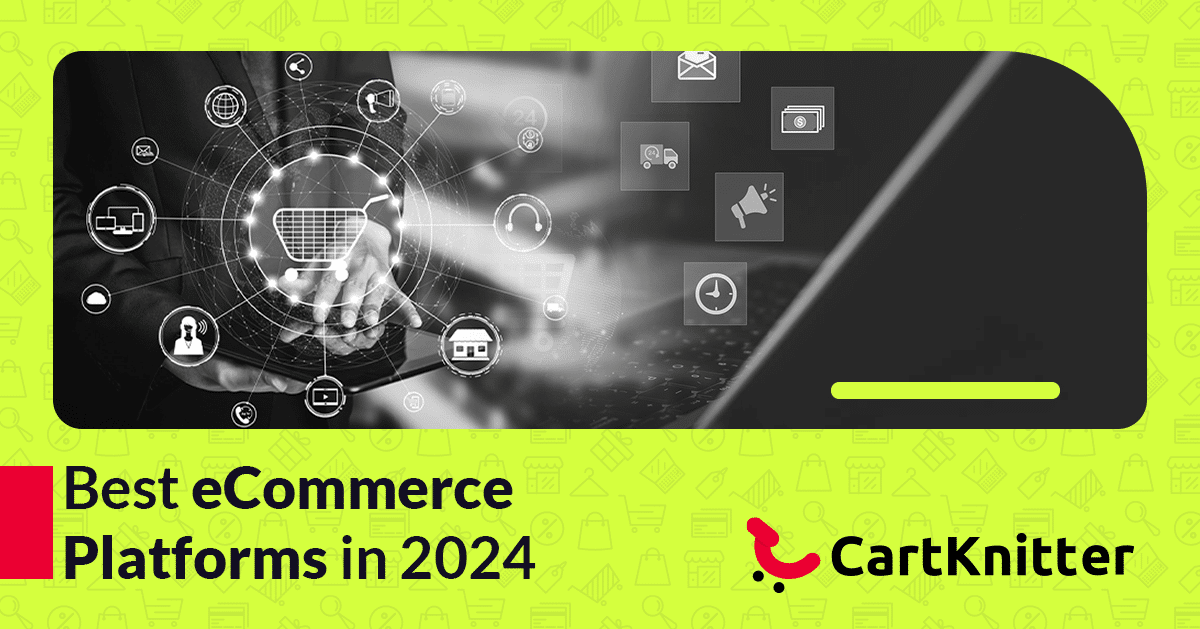

No Comments - be the first.